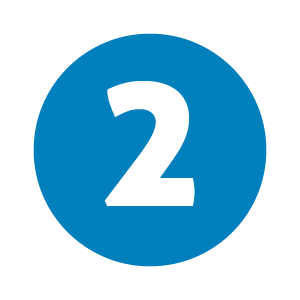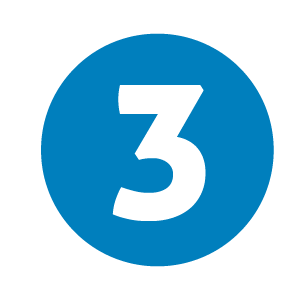Sometimes change is easy, but when we get stuck, big, difficult feelings emerge. While some coaches are ill-equipped to engage those challenging feelings, it’s a prime opportunity for transformational coaching.
The difficulty of change-failure is one reason few New Year’s Resolutions stick. People jump on the ‘new year, new you’ bandwagon and set impossible goals, bouyed by the magical thinking of a fresh start. “This Is the year when I’ll finally change ___ and I’ll do my new approach every single day…”
I’d guess that every change that requires us to succeed“every single day,” means we’re going to hit the wall of failure, then what happens next?
This article is from the 🌱 Emotional Intelligence Coach Newsletter
Click here & choose the newsletters that will help you practice and grow emotional intelligence
Joe’s Story of Failure
Let’s imagine the classic New Year’s Resolution scenario:
After months of preparation, coaching, and planning, Joe has decided on the laudable intent to get healthier. Then, caught in the New Year’s flurry, he sets an impossible plan: “I’m going to go to the gym 5 times a week and lose 10 pounds by Valentine’s day.”
He joins a gym, taking advantage of the New Year’s special, and prepays for the year (after all, he knows THIS is the year!)
After 4 weeks, he’s in a coaching session with you, and reports he’s managed to go to the gym 10 times. Odds are, he doesn’t perceive this as a success: He made a commitment and he failed. Again. Despite all the effort, all the money, all the hype — even with the best-laid-plans, he laments, he just can’t do it. He feels self-betrayal, helplessness, and shame.
What do we do?
For more on this topic, see last month’s EQ Coach Newsletter about the neuroscience of change
Of course, the best fix would be to time-travel and help him make much better New Year’s Resolutions that work, by focusing on internal growth rather than external metrics: Be healthier vs Do gym time. Note that for next December! In the meantime, what to do with Joe’s misery?
How to Coach Change When Resolutions Fail
Three areas to explore when clients struggle with change

Check your own perspective
Even coaches with strong grounding in emotional intelligence may find this challenging. So before we get to my usual three questions to explore, I’d like you to consider your own reaction: What are your feelings and thoughts about Joe and his feelings? Is he wrong to feel that? Is he weak or inadequate? Is he capable of change?
As a coach, the ‘secret trick’ that helps me more than anything else in times like this: Seeing my client as whole and resourceful. While I’m not sure I can find my own way out of this kind of conundrum, I have deep faith in the “Joes” I work with. I don’t know if that’s just a choice I made along the way, but I truly see it and feel it — when a client shares their struggles with me, deep down, I’m 100% sure they will find their way through… I’m there as a guide on the side, an ally to walk beside them, but I know it’s their journey.
The next two tips only work if you can embrace this principle.

Tap into your client’s multiple perspectives
As you discuss, one of my ‘basic rules’ of emotions: We have more than one at a time. Often they’re paradoxical (eg feeling both committed and helpless at the very same time), and these paradoxes can be a fount of energy waiting to be unleashed. So remember to ask my favorite coaching question: What else are you feeling?

Invite the client’s wisdom from within
If these feelings are here to help you, what is the help they’re trying to offer?
What are some ways you can embrace the wisdom of that feeling?
As you work on this topic, at some point, you or your client might want to move into fading the pain or fixing the difficult emotion. Instead, use the insight of the emotion to identify the underlying issues to fix. Difficult emotions are usually messages that something isn’t working the way we want it to work — soothing the feeling away leaves the underlying issue undetected.
As usual, my recommendation is you try these tips on yourself first. Then adapt and experiment – and please share with the rest of us what you learn along the way!
And, if you have questions you’d like me to explore in a future 🌱 EQ Coaching newsletter and/or video, please post in the comments, or feel free to reach out to me via our contact form.
… and don’t forget to Click here to subscribe to the EQ Coach Newsletter.
Whether you’re a professional coach, or contemplating earning certification as a professional emotional intelligence coach*, or you’re someone who uses coaching techniques to support others: of course these questions apply to us first.
* Did you know? In addition to top-level accreditation from the International Coaching Federation, the EQ Coach Certification is one of a handful of coaching certifications in North America that also provides master’s level credit? You’ll earn almost ⅓ of your MBA or MA in this program.
For more on EQ and Coaching 🌱, I recommend:
Neuroscience ‘tricks’ for change
- How Emotional Intelligence Coaches Use Emotions in Goal Setting - October 2, 2024
- 3 Winning Strategies for Successful Change Leadership: Coaching with Emotional Intelligence - September 4, 2024
- 3 Emotional Intelligence Tips for the Essence of Coaching - July 31, 2024
